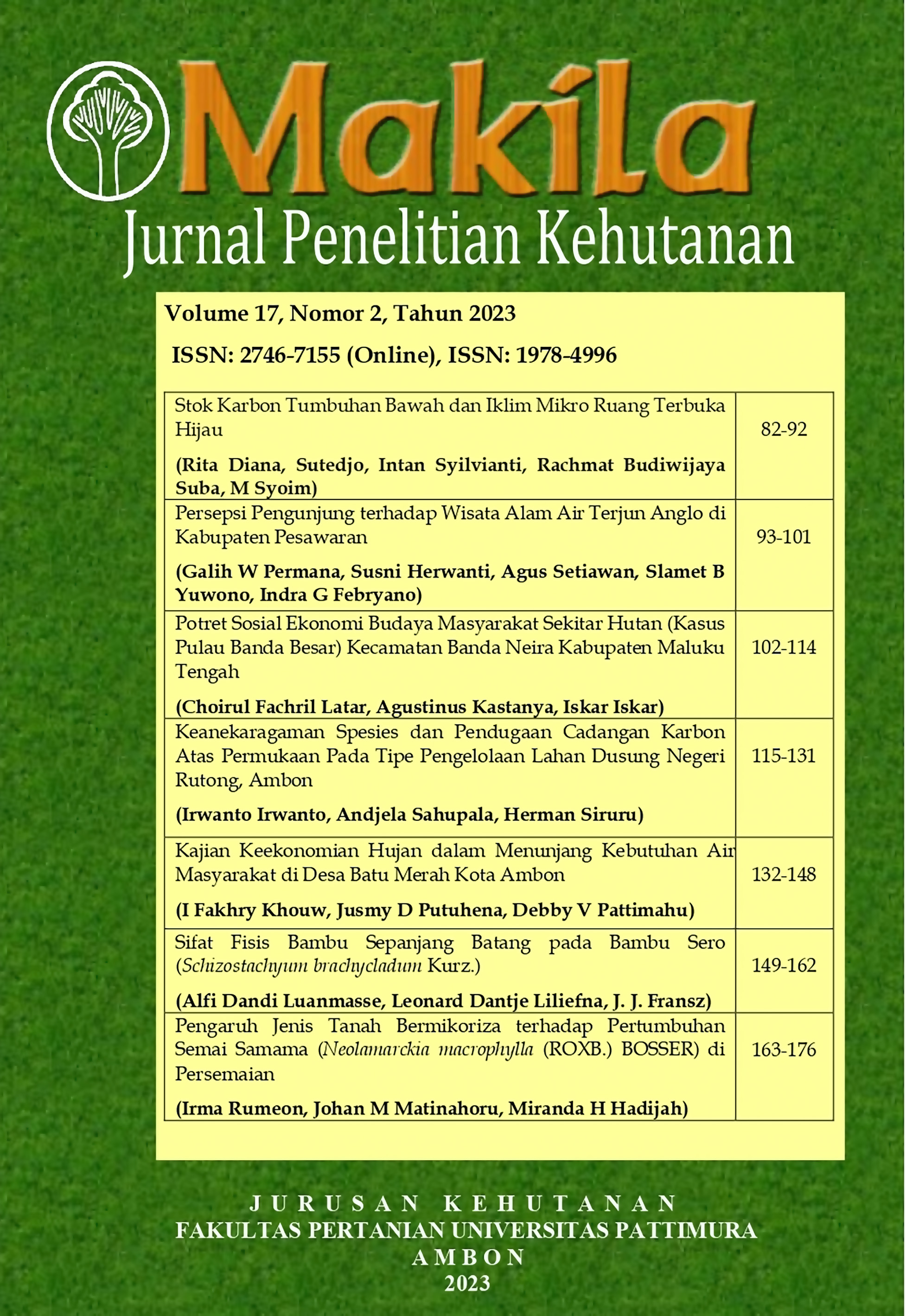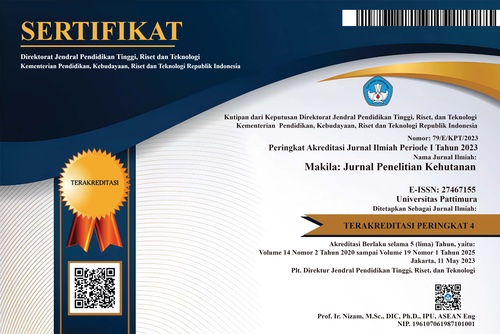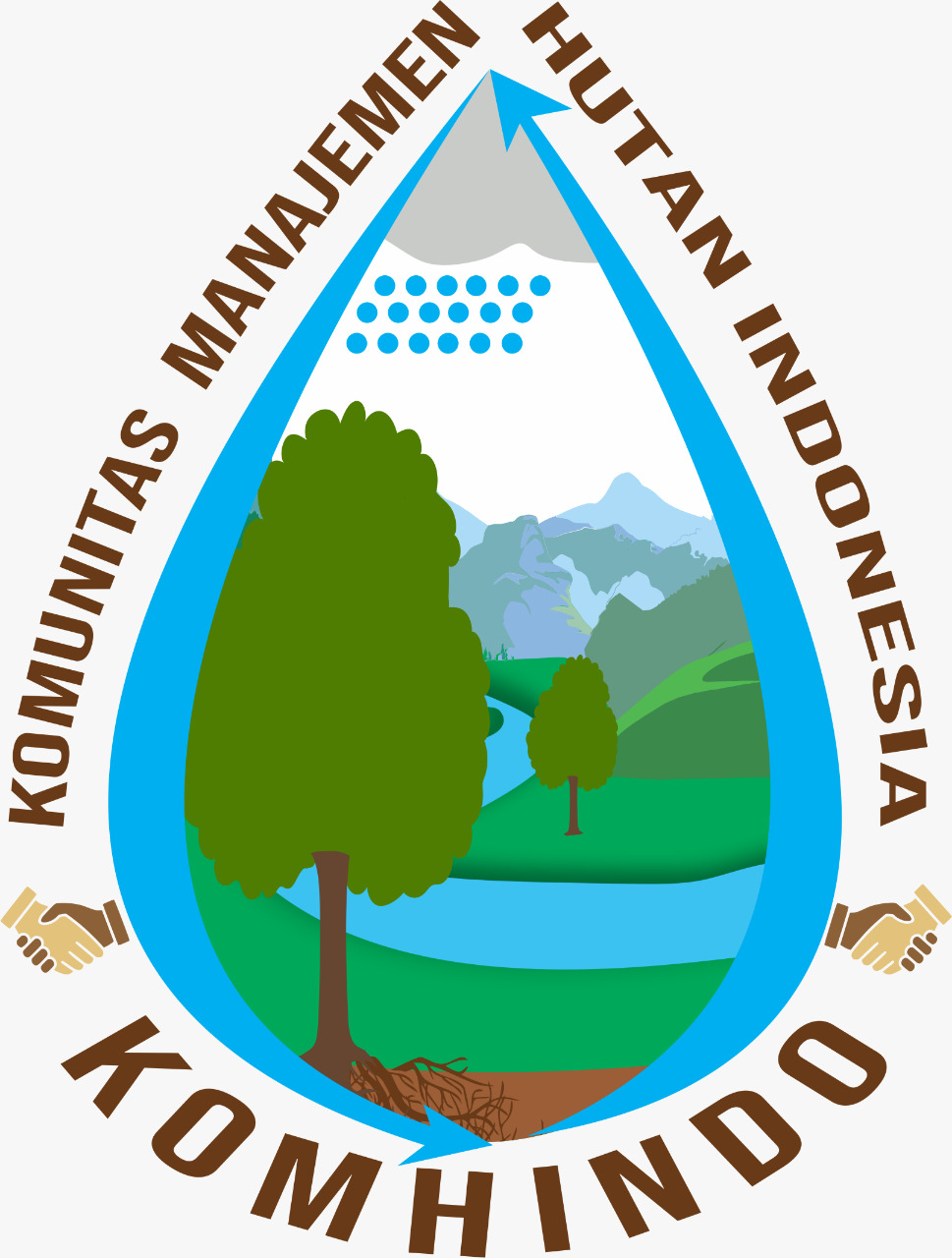PERSEPSI MASYARAKAT TERHADAP REHABILITASI HUTAN; STUDI KASUS DI HULU DAERAH ALIRAN SUNGAI BENGAWAN SOLO, INDONESIA
Abstract
Successful forest rehabilitation in the upstream is essential to enhance upstream ecosystem functions for living systems. It is believed that the community's perception of the benefits and costs incurred by forest rehabilitation activities substantially impacts its implementation. Therefore, this research aims to determine the community's perception of the impacts (benefits and losses) and attitude of forest rehabilitation in the neighborhood of Wonorejo Village, located in the upper of the Bengawan Solo watershed. A questionnaire-based survey was conducted to explore community perceptions of the benefits of forest rehabilitation, perceived losses, and attitudes toward forest rehabilitation. In total, this research succeeded in collecting 307 respondents. The results suggest that forest rehabilitation facilitates several forest-based ecosystem services, including landslide prevention, water conservation, flood mitigation, forest preservation, and community collaboration. Nevertheless, the most frequently observed adverse consequence of forest rehabilitation is the proliferation of pests and diseases among forest vegetation. Moreover, the community generally has a positive attitude towards the forest rehabilitation program, considering that forest rehabilitation is an activity that is useful, wise, and profitable for the community. Hence, the results of the present study suggest that to ensure the success of forest rehabilitation, managers should not solely concentrate on the benefits of the initiative but also devise policies capable of mitigating its adverse effects and improving residents' positive attitudes toward forest rehabilitation initiatives.
Downloads
Copyright (c) 2023 Arum Puspaningtyas Manto, Prasetyo Nugroho

This work is licensed under a Creative Commons Attribution 4.0 International License.











